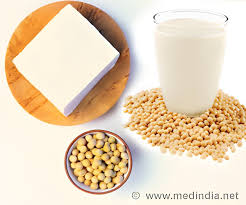
🥛 Alternative to Cow’s Milk: Healthier and Lactose-Free Options for Every Lifestyle
In recent years, many people have started looking for alternatives to cow’s milk due to dietary restrictions, allergies, ethical reasons, or health benefits. Whether you’re lactose intolerant, vegan, or simply looking to try something new, the market today offers a wide variety of cow’s milk alternatives that are both nutritious and delicious.
🌾 Why Look for Alternatives to Cow’s Milk?
Before diving into the options, let’s understand why some individuals opt for alternatives:
-
Lactose Intolerance: Many people cannot digest lactose, the sugar found in cow’s milk, leading to bloating, cramps, and discomfort.
-
Milk Allergy: Some individuals are allergic to the proteins (casein or whey) in cow’s milk.
-
Vegan Lifestyle: Vegans avoid all animal products, including dairy.
-
Ethical & Environmental Concerns: The dairy industry has been criticized for its impact on animal welfare and the environment.
-
Health Goals: Some people prefer lower-calorie, low-fat, or plant-based options for weight management or better digestion.

🌿 Plant-Based Alternatives to Cow’s Milk(Alternative to cow’s milk)
1. Almond Milk
Taste: Light, slightly nutty, and subtly sweet
Benefits:
-
Low in calories
-
Contains Vitamin E (a powerful antioxidant)
-
Dairy-free and lactose-free
Best for: Smoothies, cereals, coffee, and baking
Watch out for: Commercial almond milk can be low in protein and often contains additives or sugar.
2. Soy Milk
Taste: Creamy and rich, similar to cow’s milk
Benefits:
-
High in protein (similar to cow’s milk)
-
Contains calcium, potassium, and isoflavones (plant-based estrogens)
-
A good all-purpose substitute
Best for: Coffee, cooking, cereals, and protein-rich diets
Watch out for: Not suitable for people with soy allergies
3. Oat Milk
Taste: Naturally sweet, thick, and creamy
Benefits:
-
High in fiber (especially beta-glucan, which helps lower cholesterol)
-
Sustainable and eco-friendly
-
Great texture for frothing (popular in coffee shops)
Best for: Lattes, coffee, baking, and porridge
Watch out for: Slightly higher in carbs and calories
4. Coconut Milk
Taste: Sweet, tropical flavor
Benefits:
-
Contains healthy fats (medium-chain triglycerides)
-
Lactose-free and dairy-free
-
Great for creamy recipes
Best for: Curries, desserts, smoothies
Watch out for: Low in protein and may not be ideal for everyday drinking
5. Rice Milk
Taste: Thin, sweet, and neutral
Benefits:
-
Hypoallergenic (great for people with nut, soy, or dairy allergies)
-
Easily digestible
Best for: Drinking on its own, cereal
Watch out for: High in carbohydrates, low in protein and calcium
6. Cashew Milk
Taste: Creamy, slightly nutty flavor
Benefits:
-
Rich texture with a mild taste
-
Low in calories
-
Dairy-free
Best for: Coffee, smoothies, sauces
Watch out for: Less protein than cow’s milk
7. Hemp Milk
Taste: Nutty and earthy
Benefits:
-
High in omega-3 and omega-6 fatty acids
-
Good source of plant-based protein
-
Contains magnesium and calcium
Best for: Smoothies, protein drinks
Watch out for: Acquired taste – not everyone’s favorite
🐐 Animal-Based Alternatives to Cow’s Milk
1. Goat Milk
Taste: Stronger flavor, slightly tangy
Benefits:
-
Easier to digest than cow’s milk (lower levels of A1 casein and lactose)
-
Rich in calcium, potassium, and fatty acids
Best for: Cheese, yogurt, and drinking (if tolerated)
Watch out for: Still not vegan; contains lactose (not suitable for those with lactose intolerance)
2. Sheep Milk
Taste: Mild and creamy
Benefits:
-
Rich in calcium, protein, and vitamins
-
Easier to digest than cow’s milk
-
Great for making cheese (like feta or pecorino)
Best for: Cheeses, kefir, or limited drinking
Watch out for: Not widely available and more expensive
3. A2 Cow’s Milk (Alternative within Cow Milk)
Taste: Same as regular milk
Benefits:
-
Contains only A2 beta-casein protein (easier to digest)
-
Many people with lactose sensitivity find it more tolerable
-
Natural and unprocessed form of cow’s milk
Best for: Drinking, cooking, all daily uses
Watch out for: Not suitable for vegans or those with dairy allergies
🥣 Choosing the Right Milk Alternative
When selecting a milk substitute, consider your dietary needs, allergies, taste preference, and nutritional goals:
| Need / Preference | Best Option |
|---|---|
| High protein | Soy milk, hemp milk, A2 milk |
| Low calories | Almond milk, cashew milk |
| Good for coffee | Oat milk, soy milk |
| Hypoallergenic | Rice milk, oat milk |
| Rich in calcium | Fortified plant-based milks |
| Lactose intolerance | Almond, soy, oat, rice, coconut |
| Vegan or plant-based | Any plant milk (not goat/sheep) |
✅ Final Thoughts
Whether you’re avoiding dairy for health, ethical, or environmental reasons, there’s never been a better time to explore alternatives to cow’s milk. From plant-based options like almond and oat milk to animal-based but easier-to-digest choices like goat or sheep milk, the choices are abundant and tailored to modern dietary needs.
Try different types and brands to see what suits your taste and lifestyle. And whenever possible, choose unsweetened and fortified versions to ensure you’re not missing out on key nutrients like calcium, vitamin D, and B12.
follow us instagram
